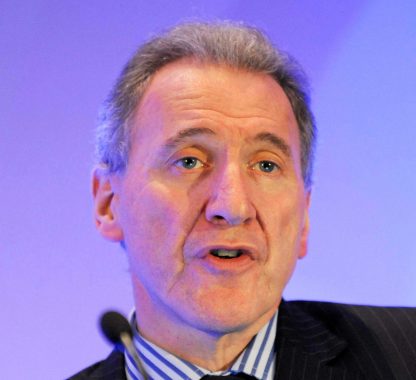Exclusive The CQC were warned in advance that its plan to publish GP ‘risk ratings’ would lead to headlines denouncing the profession and would inevitably be seen as way of ranking practices, Pulse can reveal.
The GPC said they contacted the CQC on Friday, as soon as they found out about the CQC’s intention to publish practices’ risk scores, to warn the regulator that publishing the ratings was a ‘bad idea’ and would be used by the press to unfairly rate practices.
GPC leaders have also said they will be contacting the CQC to express the anger felt by GPs, and has already taken legal advice, which stated that there were no grounds for legal action.
The CQC has said that the rankings are not ‘judgements’ of practices, which can only come from inspection, and it ‘cannot control’ the subsequent coverage from the release of its intelligent monitoring data on Monday, which was published alongside a map which shows which risk-band each practice falls into.
But chair of the GPC’s contracts and regulation subcommittee Dr Robert Morley said the GPC had immediately contacted the inspection body to say publishing the ratings would ‘compound’ the problems from using the 38 disputed indicators, which are based on data from QOF and the GP Patient Survey.
Related stories
Practices ‘risk rated’ by CQC based on QOF and patient survey data
CQC’s ‘risk ratings’ are incredibly damaging – they must be withdrawn
Dr Morley said the outcome was ‘clearly obvious, entirely predictable, and inevitable’ and argued the data should have remained an internal tool for prioritising inspections.
He said: ‘GPC spoke to CQC on Friday after emails were sent to practices saying the rankings would be published on the CQC’s website, and they were advised that it was a bad idea.
‘I mean it is clearly obvious, entirely predictable and inevitable that once this came into the public domain that by some people in particular, certain elements of the press, this would be seen to rate practices – just as we have seen in the headlines .’
He added: ‘Why publish something like this when it is bleeding obvious that the press is going to have a field day with it?’
‘The CQC had previously been told by GPC that we didn’t feel that most of these indicators were fit for purpose but they still went ahead and used all of these and then compounded the crime by publicising them.’
The regulator’s report on Monday allows patients to access their practice’s scorecard, which gives a breakdown of any indicators where the practice is deemed to be at risk or elevated risk.
It is based on 38 indicators, which include clinical standards, such as coronary heart disease and dementia diagnoses, measured from QOF performance and also scores from the GP Patient Survey, including patient’s ability to access their preferred GP.
The report found that 80% of the ranked practices – which exclude those with incomplete data, such as Somerset where practices stopped the national QOF this year – are currently deemed to be of ‘low risk’.
But many practices deemed to be at risk have found themselves plastered over the pages of their local papers and contacted by patients, based on factors beyond their control.
GPC deputy chair Dr Richard Vautrey told Pulse GPs should be proactive in combatting negative stories in the local media, adding that the committee had already sought legal advice around the CQC’s actions.
He said: ‘We have taken legal advice and there is no grounds for legal action against CQC on what they did in releasing information as they did.
‘We are writing directly to CQC about this and wider concerns that GPs continue to raise about CQC and have spoken directly to senior members of CQC about the anger GPs have about this. It is important that local GPs respond to adverse articles in the local press to put the facts straight. We are already working with local GPs to facilitate this but that should not stop as many others as possible to respond too.’
A CQC spokesperson told Pulse: ‘May I suggest that you refer to what we have actually published rather than the subsequent coverage that we cannot control?’
And added: ‘At all times, we have been clear that the intelligent monitoring bandings are not CQC’s judgments of services – these only happen once we have carried out inspections The intelligence packs are used for discussion with general practices during our inspections. The bandings are not judgements.’
‘We have not said that the evidence proves surgeries are putting patients at risk but as an independent, open and transparent organisation, it is our duty to be honest and clear about what our analysis of the evidence suggests and how we will use it.’
The intelligent monitoring data will be available through the new MyNHS section of the NHS Choices website, and Jeremy Hunt said the tool would be central to allowing patients to compare GP services through ‘Trip Advisor-style’ ratings.
Pulse October survey
Take our July 2025 survey to potentially win £1.000 worth of tokens













